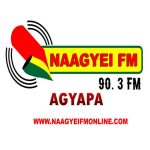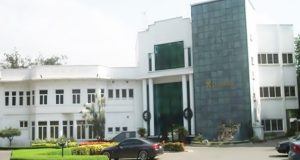Cabinet has given approval for two initiatives aimed at boosting Science Technology, Engineering and Maths (STEM) across basic and senior high education levels in Ghana.
The first is the construction, provision of equipment and training of trainers for regional science Technology Engineering Arts and Mathematics Centre’s for SHS System.
Information Minister Kojo Oppong Nkrumah at a briefing in Accra said the project which is budgeted at 88million cedis is a school-based interactive science and technology learning centre, which would provide practical approaches towards learning in Senior High Schools.
Mr. Nkrumah said the overall aim of the project is to enrich the academic contents offered by formal training in STEM.
“The project will improve the pedagogy of teaching of basic maths and science, address the fear of teaching and learning maths and science as well as provide technology kits for maths and science education. It will also provide ICT equipment to improve the competency of both teachers and students” he told reporters.
He disclosed that the first phase will comprise 10 Centres at 88million and the second phase of 6 additional centres will be built and is expected to be completed within 2 years upon receipt of parliamentary approval and disbursement of funds.
The Information Minister also announced that the second approval is a Basic Science Maths Technology Engineering and Mathematics programme at 76 million pounds for delivery and installation of BSTEM equipment and training to improve quality of science and Maths education within the basic education system in Ghana, in addition to introducing basic engineering and technology into basic edification.
He indicated that building on a successful pilot program conducted in 2008 with 100 JHS teachers, the BSTEM program is aimed at developing the teaching of science and maths to better prepare teachers to impart practical and problem-solving skills to pupils and increasing science and maths participation at the SHS levels.
The program will cover all basic schools in Ghana in three phases over a 5 year period and includes training modules for regional advisors and teachers.
“It is expected that the two initiatives will significantly improve the teaching and learning of science and maths in our schools and in so doing improve the analytics and problem-solving skills of our young ones in the medium to long term” he ended.
 Naagyei 90.3 Fm Agyapa
Naagyei 90.3 Fm Agyapa




